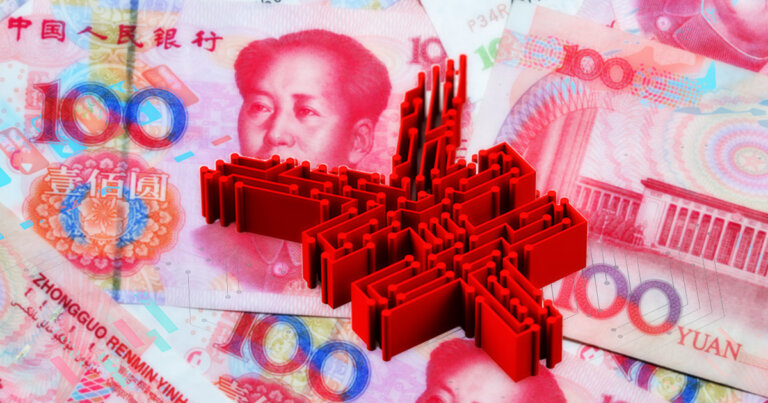 China ramps up efforts to push CBDC adoption among public
China ramps up efforts to push CBDC adoption among public China ramps up efforts to push CBDC adoption among public
Starting in May, government employees in the city of Changshu will receive their salaries in the digital yuan.

Cover art/illustration via CryptoSlate. Image includes combined content which may include AI-generated content.
China is ramping up its efforts to popularize the use of its central bank digital currency (CBDC) — the digital yuan, or e-CNY — as the project moves closer to its planned national rollout.
Starting in May, government employees in the city of Changshu will receive their salaries in the digital yuan. This will also include employees of state-owned corporations and all public sector workers such as teachers, doctors, and nurses.
CBDC in a cashless society
Changshu, which is located in the province of Jiangsu in eastern China, has been part of the CBDC project for a while now, with the city paying some government workers’ transit subsidies via the e-CNY.
A number of Chinese cities have been experimenting with the e-CNY in various ways since its launch in 2020. However, paying hundreds of thousands of people with the digital yuan is an unprecedented push from the government to force the adoption of its digital currency.
Chinese society is largely used to functioning cashless, with more than 80% of the population owning smartphones with digital payment apps thanks to the e-commerce boom over the past two decades.
However, the digital payment needs of Chinese citizens are currently fulfilled by privately-owned applications like Alipay and critics claim the government wants to change that and ensure that even the digital financial system is directly controlled by the central bank.
e-CNY
The Chinese central bank introduced the digital yuan in 2020 as its take on what a central bank digital currency should be. It was developed in collaboration with the Blockchain-based Service Network (BSN) on its in-house blockchain network.
BSN is a Chinese state-backed digital infrastructure company.
Despite its claim to blockchain technology, the digital yuan does not share many traits with cryptocurrencies and is extremely centralized. It is issued and controlled by the People’s Bank of China and is meant to be the digital version of its national fiat currency.
The central bank has been rolling out the digital yuan in phases since its introduction, with a number of cities involved in pilot testing before it can be rolled out on a national level.



 Farside Investors
Farside Investors 


 CoinGlass
CoinGlass 






















































































